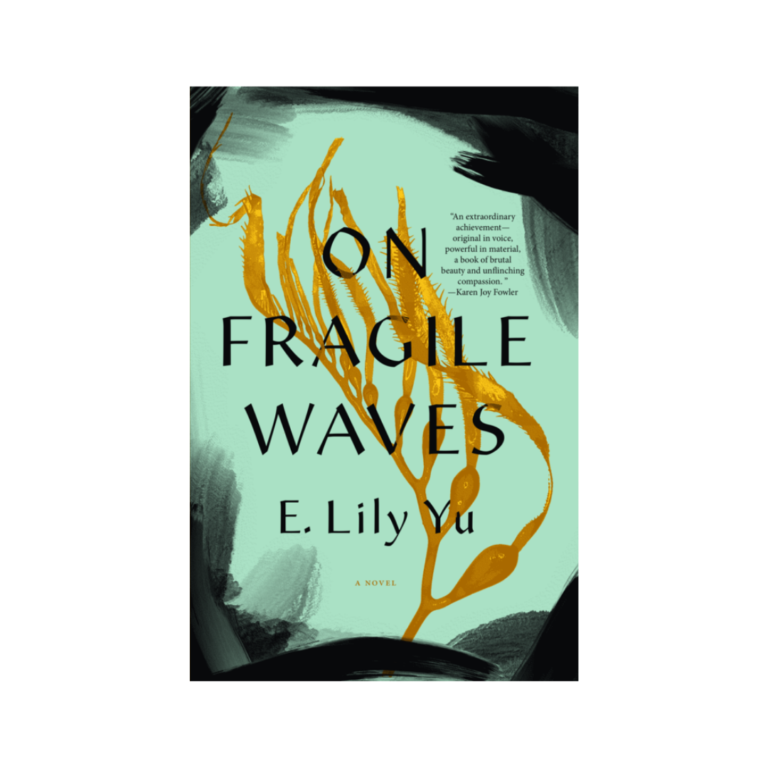Review of On Fragile Waves
Erewhon. 2021. 288 pages.
In a later chapter of E. Lily Yu’s On Fragile Waves, the protagonist Firuzeh is confiding in her friend Nasima. In reference to their constant relocating, Nasima says, “I don’t remember what home means anymore.” Firuzseh responds, exhausted but hopeful: “Home is where you’re safe, but sometimes it’s not safe. Sometimes it’s not yours, but you can shut your eyes and pretend it is.” It’s here that E. Lily Yu reveals how storytelling is a product of hope and how, in dire circumstances, pretending can keep you going.
The novel addresses the immigrant crisis in Australia. The story follows a young girl, Firuzeh, and her family’s journey immigrating from Afghanistan to Australia. Their journey to Australia becomes far more difficult than their dreams of opportunity imagined. They are forced to make stops in Pakistan, Indonesia, and Nauru – places known for the “offshore processing” of refugees. There Firuzeh and her family live in a tent among many other refugees, waiting for the day they are allowed to enter Australia. To comfort herself from reality, Firuzeh retreats into a dream-like world where she constantly daydreams and narrates fairy tales to herself. This daydreaming extends far enough to maintain a friendship with Nasima, a girl who drowns during a storm on their ship from Pakistan. Yet she cannot hide in her daydreams forever. Upon settling in their new home, Firuzeh’s family life worsens, forcing her out of her dream world and into reality.
On Fragile Waves makes a case for the vitality of daydreamers and storytellers. Firuzeh is consistently retreating from the tragedy surrounding her into her daydreams where her favourite tales are told. In these tales she recalls mystical creatures and harrowing quests and is able to shield herself from her reality of crowded boats and refugee camps. In her own mind Firuzeh is able to work through her emotions surrounding her family’s circumstances, as well as have someone to talk to through her dream-version of Nasima. Due to Yu’s impeccable words, Firuzeh’s method of coping with loss, both of those she loves, as well as her home is framed as noble. Her mind becomes her defense, and the reason that she has been able to make it through all her obstacles.
Yu’s choice to use Firuzeh as the point of view character, despite the novel being in third person, is smart in the sense that readers get to experience Firuzeh’s magical dreams and her rejection of reality. Yet, this decision backfires by stunting the development of all other characters within the novel. Firuzeh is a character who is consistently within her own head, which ends up limiting the reader’s look into the other character’s lives. There are points where they seem to act with no reason because Firuzeh does not understand their motives. Late in the novel, Firuzeh’s brother Nour runs away from the family out of fear of being deported. His actions force Firuzeh out of her daydreams. Because the reader has been in the daydreams with her they’ve been robbed of knowing Nour. It is not until Firuzeh finds him and has a conversation about his actions that the reader is given a chance to know a character outside of Firuzeh’s head – and even then only briefly.
In On Fragile Waves dreaming is an escape as well as potential solution. Not only for Firuzeh, but everyone, who she has met or will meet in the future. They all have hopes for a better life. Yu’s otherworldly but devastating prose perfectly captures this defense of dreams. The novel rests its case; dreams are important not just for pleasure, but for survival.

